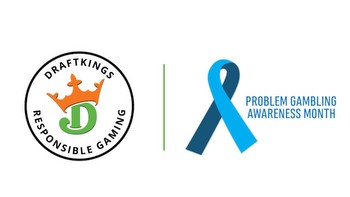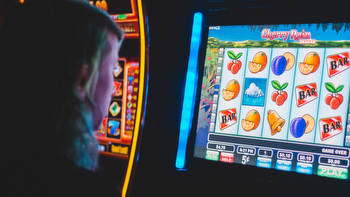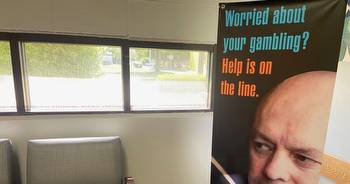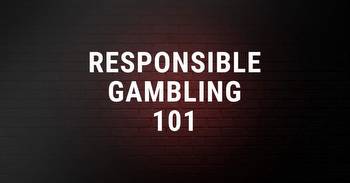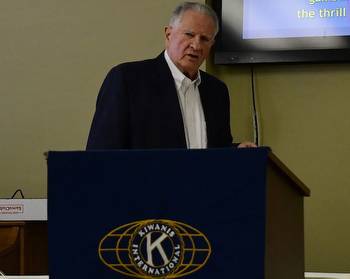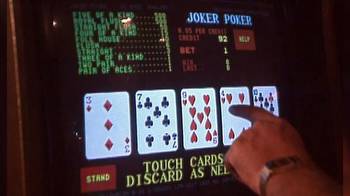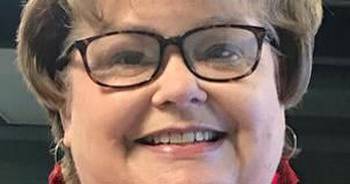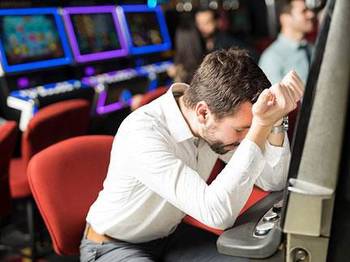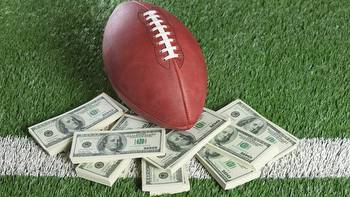Responsible gambling: How to gamble responsibly or find help for problem gambling
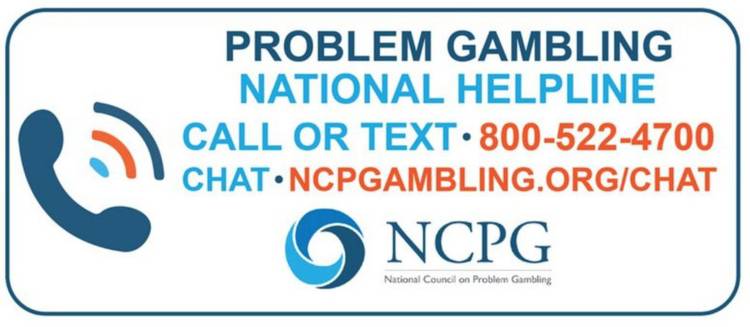
Catena Media provides exclusive sports betting content to OregonLive.com, including picks, analysis, tools and sportsbook offers to help bettors get in on the action. Please wager responsibly.
There are many legal gambling options in Oregon and elsewhere in the US. Whether you’re playing the lottery, betting on sports, entering daily fantasy sports contests, wagering on horse races, or playing charitable games, it is always important to practice responsible gambling.
Responsible gambling is a two-way street involving both those who gamble and those who provide gambling to their customers. Gamblers must moderate their play and avoid being reckless or overindulgent with their time and money. Providers should manage and present their games in a way that encourages players to gamble responsibly.
Read on to learn more about responsible gambling, including how both gamblers and providers can ensure gambling remains a safe and fun activity for all. We’ll also cover the signs and symptoms of problem gambling as well as information about resources to help prevent and/or treat problem or compulsive gambling.
At its core, responsible gambling simply means being smart and cautious when betting. You should be fully aware of the inherent risks and avoid the pitfalls that can easily make gambling a negative, or even destructive, activity. There are also a number of practices gamblers can consciously follow to help ensure responsible play.
Here are a few of those practices. If you follow these tips, you will position yourself well to gamble responsibly.
- Always track how much you spend when gambling, accurately recording your wins and losses.
- Make it a policy never to gamble with money needed for other purposes. If it helps, keep a separate gambling “bankroll” that purely consists of discretionary money not required for any other expenses. Don’t gamble with money needed for rent, mortgage payments, food, bills, or other essentials.
- Consider limiting how much you plan to spend in every gambling session. For example, when deciding to place a sports wager, have a maximum amount in mind that you do not exceed, no matter the situation.
- Limit the time you spend gambling. Some online gambling sites, for instance, have time-limit tools.
- Never gamble without understanding the odds, probabilities, payouts, and other factors affecting both the risk and the potential reward.
- Don’t automatically gamble more when you win (i.e., don’t “ride the rush”), and don’t gamble more when you lose (i.e., don’t “chase losses”).
- Don’t gamble with borrowed money.
- Don’t gamble on credit.
- Avoid gambling if you are feeling tired, anxious, stressed, or worried. Always keep a clear head when you gamble.
- By the same token, never gamble while intoxicated or impaired in any way.
Spend a moment reading back over that list of recommendations. Do you practice all of them when you gamble? If not, add the ones you are missing to your routine.
Gambling facilities (casinos, sportsbooks, and racetracks), gambling websites (online sportsbooks and DFS sites), lottery providers and retailers, and everyone else who provides gambling opportunities should actively encourage responsible gambling among their customers.
With that goal in mind, here are some guidelines gambling providers can follow.
- Clearly post all rules, odds, payouts, and other relevant information regarding the games. Be transparent with players about their chances of winning and losing at all times.
- When advertising bonuses or promotions, be clear about the terms and conditions. For instance, with “bonus bets” (at an online sportsbook), make sure the bettor knows the bets must be used for wagering and cannot be withdrawn like cash.
- Never encourage so-called “degenerate” gambling or make light of problem gambling when advertising or engaging with customers (including on social media).
- Guard against illegal or underage gambling and always enforce the jurisdiction’s gambling laws.
- Inform and educate players about responsible gambling and connect them with resources to prevent and/or treat problem gambling.
- Provide players with tools to set limits on time and money spent gambling, including the option to self-exclude if needed.
- Track players’ gambling, learn to recognize patterns indicating the likelihood of problem gambling, and act to prevent problem gambling from occurring.
- Train staff to recognize signs of problem gambling and to act when necessary to prevent problem gambling.
- Never permit patrons who are drunk or impaired to gamble.
In many cases, providers of legal gambling can only keep their gambling licenses if they follow regulators’ guidelines for promoting responsible gambling. Even so, they should go over and above any requirements to promote responsible gambling however possible.
In some ways, “problem gambling” might be defined as anything other than “responsible gambling.” When you aren’t following the tips listed above when you gamble, you at least run the risk of sliding into self-destructive behavior.
Technically, though, problem gambling is tricky to define. What might be problematic for one bettor may not be an issue for another. One way of describing problem gambling is to say that any time gambling creates any sort of negative consequence, even a small one, that is problem gambling.
In other words, when a person loses their life savings at the sportsbook, that’s obviously problem gambling. But even a single bet negatively affecting other areas of a person’s life (or the lives of others) should be regarded as problem gambling.
It is crucially important to be mindful of signs and symptoms of problem gambling in oneself or in those we care about because even small issues can rapidly build into potentially catastrophic situations. Problem gambling ruins lives. It not only can ruin a person or family financially but also cause serious harm to the mental and even physical health of those affected.
Here is a list of problem gambling signs and symptoms. Some of these items can be perceived by others. If you notice them in someone you care about, take action immediately. Other items listed below can sometimes be hidden from view, making it harder to help those in need.
Take this list of problem gambling symptoms and apply it not just to gamblers you know but also to yourself.
- Spending more money or time gambling than intended.
- Feeling guilty or remorseful about gambling.
- Acting angry or irritable when not gambling.
- Being incapable of enjoying social activities that do not involve gambling.
- Lying or misrepresenting gambling to others (e.g., exaggerating wins, minimizing losses).
- Experiencing wild emotional swings relate to gambling (e.g., euphoric after winning, despondent after losing).
- Unexpectedly withdrawing money or trying to raise money by selling possessions.
- Stealing money or with which to gamble.
- Paying bills late or not paying them at all.
- Using gambling to forget or escape other troubles or stressors.
- Missing work or school frequently and/or without explanation.
- Not taking care of one’s health or hygiene.
There are other indicators of problem gambling, but these are among the most common. Problem gamblers tend to elevate gambling to a place of central importance in their lives, which in most cases is unreasonable and undesirable.
Be on the lookout when friends and loved ones appear to be devoting too much energy and attention toward gambling, and be honest when assessing your own gambling habits.
Those looking for help preventing and/or finding treatment for problem gambling have many avenues. There are numerous national organizations devoted to providing such assistance. In many cases, it’s both free and confidential. Here are some of the better-known organizations in the US you can consult for help with problem gambling.
The National Council on Problem Gambling (NCPG) is the most prominent national organization dedicated to providing help preventing and treating problem gambling. If you visit the NCPG website, you’ll find a wealth of resources, including state-by-state information about how to find problem gambling programs and treatment facilities, screening tools and information about counselor training, information for both gamblers and gambling providers about responsible gambling, and more.
Oregon is a state affiliate of the NCPG. Oregonians are thus invited to use NCPG resources to find offices and individuals close to them that provide problem gambling support.
The NCPG hosts the 24-hour toll-free and confidential National Problem Gambling Helpline Network. The network consists of both the phone helpline and ways to chat or text with NCPG representatives as well:
- Call: 1-800-GAMBLER (1-800-426-2537)
- Text: 800GAM
- Chat:www.1800gamblerchat.org
Gamblers Anonymous is a fellowship-style organization that enables problem gamblers to help each other via support groups and other forums. The organization requires no fees or other costs, explaining its “only requirement for membership is a desire to stop gambling.” Among the methods employed by the organization is a 12-step recovery program similar to the model used by Alcoholics Anonymous.
The website offers information about problem gambling, including a detailed FAQ and a yes-or-no questionnaire designed to help visitors determine if they suffer from problem gambling. There is copious information about meeting locations and times, including virtual meetings. Those in Oregon can reach Gamblers Anonymous any time via the Oregon Hotline Number at 1-855-2CALLGA (1-855-222-5542).
Gam-Anon is another organization devoted to problem gambling assistance, concentrating on helping family members and friends affected by someone’s problem gambling. The organization helps connect people with counselors and health providers who can guide them as they negotiate the significant impact a loved one’s gambling can have on their own well-being.
The Gam-Anon site includes a comprehensive directory showing when and where meetings take place (both in-person and virtual). You’ll find other helpful resources there, too, including problem gambling literature, avenues to sponsorship and service, how to find pressure relief meetings and budget meetings, and more. You can reach Gam-Anon by phone at 718-352-1671 and by email at gamanonoffice@gam-anon.org.
One more resource worth knowing about is GamTalk, a program focused on helping problem gamblers and others find ways to support one another. The website hosts chat rooms, a discussion forum, a Stories of Hope page, and a Community Wall where visitors can interact and discuss their journeys toward recovery.
The website additionally offers additional links to other resources where those in need can find treatment and support not just in Oregon and the US but around the world.
Oregon is one of the highest-ranking states in the US (on a per capita basis) when it comes to using public funds to provide problem gambling services. In fact, a study from a few years ago found Oregon ranked second in the nation and offered more than four times the average when it came to per capita public investment in problem gambling services.
Here are a couple of places where you can find help in Oregon, both of which can point you to even more local problem gambling resources.
The Oregon Council on Problem Gambling (OCPG) provides a variety of help and support for those struggling with problem gambling as well as those who have friends or family members in need of help. The website offers tips and advice as well as links to Prevention Coordinator Locations (searchable by county) and other resources.
The OCPG maintains a 24-hour free helpline, 1-877-MY-LIMIT (1-877-695-4648), where you can talk to a certified gambling counselor. Spanish speakers in Oregon can call 1-844-TU-VALES (1-844-888-2537). The website also invites visitors to talk to counselors via live chat Monday through Friday from 9 a.m. to 9 p.m. Alternatively, you can text with an OCPG representative during those same hours at 503-713-6000.
The Oregon Health Authority (OHA) is a state governmental agency that administers a system of Problem Gambling Services that includes the OCPG. The site links visitors seeking help with problem gambling to more prevention providers, treatment providers, and general resources. You can reach the OHA’s Problem Gambling Team via email at pgs.support@dhsoha.state.or.us.
The OHA additionally provides training materials and information to those looking to become certified gambling counselors. The agency also serves as an informational hub that gathers and makes public research and survey data to help increase understanding of problem gambling and its impact on Oregonians.
Legal gambling is widely available just about everywhere in the US, and the industry continues to expand. With more gambling opportunities comes a greater need to guard against gambling’s potentially negative influence on individuals, families, and communities.
Being mindful about responsible gambling is a great way to ensure it remains a fun, positive activity. Use moderation, self-impose limits, understand the risks, and never gamble with money you cannot afford to lose. And if ever you believe gambling might be a problem for yourself or someone you care about, don’t hesitate to reach out for help.
If you or a loved one has questions or needs to talk to a professional about gambling, call 1-800-GAMBLER or visit 1800gambler.net








